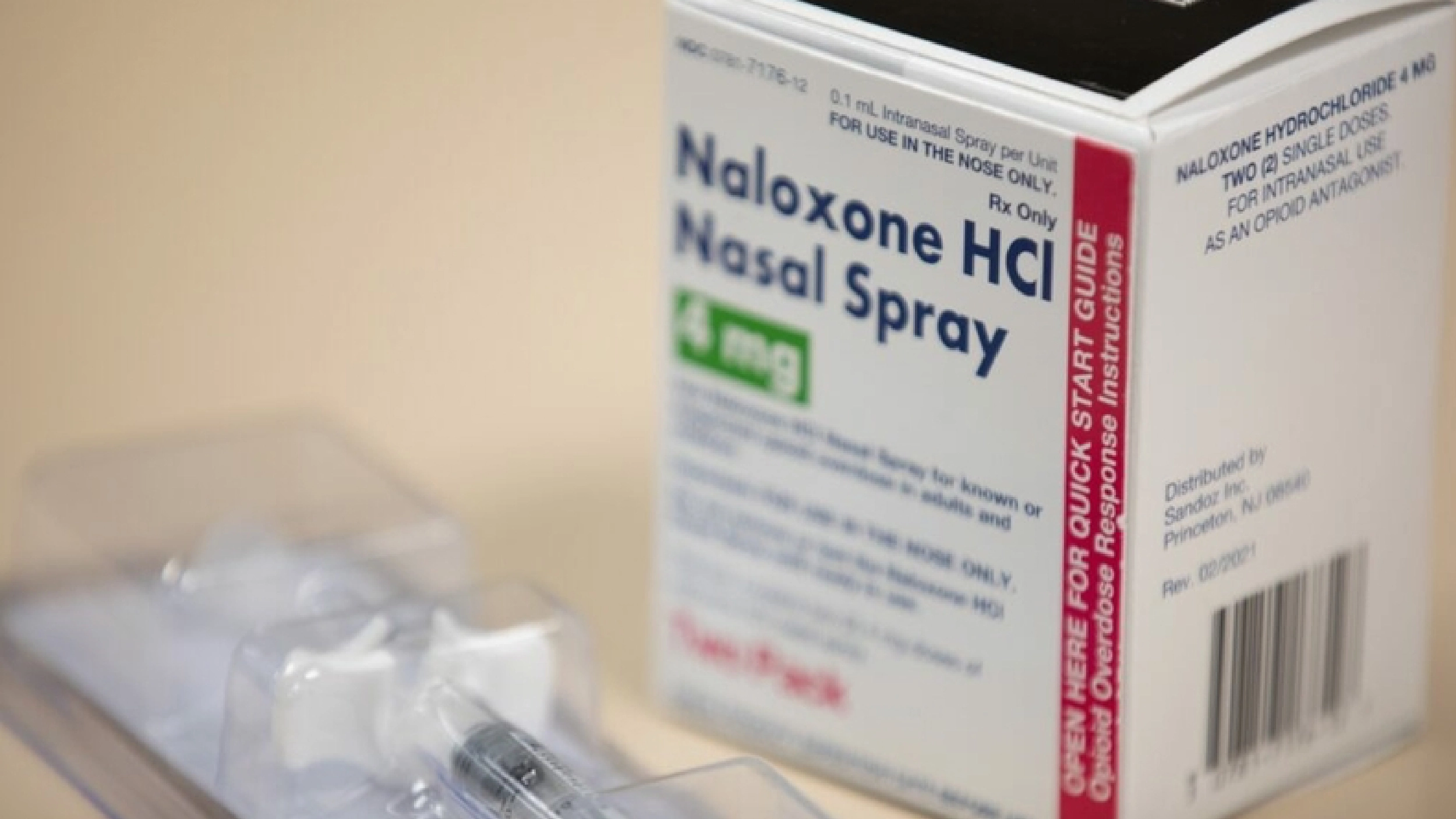
A Guide To Repairing Family Relationships
Discover expert tips for repairing family relationships and fostering healthy connections with The Recovery Team.

Abuse of amphetamines has grown to be a severe problem for people in the United States. When used as prescription drugs like Adderall and Dexedrine, as well as illegal amphetamines like methamphetamine and ecstasy, they are very addictive.
A group of synthetic medicines known as amphetamines acts as central nervous system stimulants. Doctors legally advise this drug for treating narcolepsy, ADHD, and, very rarely, cases of severe obesity.
Users must know that addiction has possible risks. As there is no medical use or control provided to persons who use amphetamines for fair medical reasons, these risks rise when they abuse the drugs.
Amphetamines, which have addictive features, are often used in party scenes. It is also seen worldwide by college students looking to improve their exam performance.
You will learn more about these substances and treatments in this article. Also, how they affect the body help people spot the signs of addiction.
Due to the structural changes in the brain brought on by prolonged use, treating amphetamine addiction and abuse can be difficult. Avoiding relapse can be difficult because of the severe depression and lack of joy when drug addiction is stopped.
However, therapies support users in understanding and altering their behavior based on drug use triggers. They can help them start and sustain their recovery. Among these treatments are:
The Recovery Team can assist if your loved one is battling amphetamine dependence. Call us at (800) 817-1247 and get the medical emergency immediately.
Simply put, a user of amphetamines who quits using them may experience stimulant withdrawal symptoms. This is because their body and mind have not yet altered to life without the drugs.
The following are some likely amphetamine withdrawal symptoms:
The acute withdrawal symptoms from amphetamines can persist for one to two days, and after that, mood swings, sleep problems, low energy, and cravings can last for several days to weeks.
When an amphetamine user who has become reliant on them abruptly quits using them or cuts back, they experience amphetamine withdrawal.
This withdrawal occurs because the body has adjusted to the drug’s presence and now requires it to function adequately. This is when it is time to seek professional addiction treatment.
You may regain your life and begin the recovery process by enrolling in amphetamine addiction treatment. It’s crucial to have a personalized treatment plan for addiction founded on a thorough evaluation by medical staff. In light of the individual needs, The Recovery Team aids in determining the proper level of care.
Complete treatment at a rehab center like The Recovery Team can help you end the pattern of amphetamine usage and reclaim control of your life. If you or someone you care about is battling an amphetamine addiction, contact us at (800) 817-1247.
The length and type of therapy you receive will depend on your specific situation and how severe your addiction is. The Recovery Team can assist if your loved one is battling an amphetamine addiction. We are a top supplier of addiction treatment programs and have reputable facilities nationwide.
People who have battled amphetamine addiction or abuse are more likely to progress in their recovery and begin living lives free from amphetamine abuse if they work with a credible, research-based treatment program.
When a substance use disorder or activity is misused regularly, a person’s brain chemistry alters. The reward circuit in the brain changes, making it harder to maintain self-control. It creates powerful cravings to keep engaging in the behavior.
A person may always be in danger of reusing a substance due to the changes it has left on their brain, even if they have not used it for a long time.
Amphetamine addiction may result from prolonged and heavy use. Some people develop habits more quickly than others. If you use these drugs without a prescription, you risk becoming reliant. If you take more than is advised, you risk developing a dependence. Even if you take amphetamines as prescribed by your doctor, a use disorder may emerge.
Family history and genetic variations influence behavioral responses. They are assumed to be linked to abusing amphetamine-like drugs.
Psychiatric illnesses resulting from different organic, medical, and psychiatric aetiologies can be mistaken for those psychiatric problems linked to amphetamine use.
The history, physical exam, and first laboratory workup can help pinpoint the origins of amphetamine-related psychiatric issues.
If the patient is in a condition of intoxication or withdrawal, The Recovery Team can help identify this.
The needs make it easier for therapists to indicate between diseases that happen during withdrawal. They also occur during intoxication, such as psychosis, delirium, mania, anxiety, and sleeplessness (e.g., depression, hypersomnia)
Amphetamine use has a high addictive potential. When using these medicines, the user’s central nervous system is mimicked, raising the neurotransmitter dopamine level in the brain.
The rise in dopamine levels in the brain produces a sense of euphoria and general well-being.
Amphetamine users who use them often can become addicted and need to increase their dosages often to get the same results. Users of amphetamines could discover that they need to take higher doses to get the desired “high” effects. As long as a person continues using drugs, this process will continue.
Because of this vicious cycle of increased tolerance and drug use, amphetamines have a significant potential for addiction.
Amphetamine use for recreational purposes carries hazards and potential for addiction. These consist of the following:
The structural changes in the brain that can arise from using these medicines are just one of the primary risks, as was previously mentioned.
Amphetamine use can impact a person’s capacity to stop using and prevent relapse. It can fundamentally alter how the brain functions by destroying grey matter and dopamine receptors in the brain.
When used to treat medical conditions like obesity, narcolepsy, or attention deficit hyperactivity disorder (ADHD), they are legal when advised by a doctor.
But, the availability of amphetamine use can result in addiction. When used to enrich the version or get high without a prescription, amphetamines are considered illegal.
It should not be used in homes as regular use. The similar adverse effects of amphetamine can range from minor to severe.
Social pressure can be a significant risk factor for individuals struggling with amphetamine addiction. Being surrounded by peers who engage in drug use can make it difficult to resist the temptation to use, even for individuals committed to recovery.
Furthermore, societal stigmas surrounding addiction can cause individuals to feel ashamed or embarrassed, making it difficult to seek help.
The pressure of societal expectations can also drive individuals to continue using despite the negative consequences. Financial pressures, such as difficulty finding employment or paying for treatment, can also contribute to stress and increase the risk of relapse.
Individuals with amphetamine addiction need to seek support from a network of individuals who understand the complexities of addiction and can offer encouragement and understanding as they work toward recovery.
A lack of support can be a significant risk factor for individuals struggling with amphetamine addiction. Individuals may feel isolated and alone in their struggles without a support system, making it more difficult to overcome addiction.
Family members and friends who do not understand addiction may offer criticism or judgment rather than support, making the recovery process even more challenging.
A lack of support to resources, such as mental health services or addiction treatment programs, can pose a significant challenge for individuals needing help.
According to the National Institute on Drug Usage, there are additional immediate and long-term issues connected to the effects of amphetamine abuse on the body, such as:
These symptoms get worse with time. While rising body temperature can harm organs and tissues, high blood pressure can damage blood vessels and the heart.
Low appetite can result in harmful eating behaviors, which can cause malnutrition and harm the body and the brain.
Amphetamine addiction can have a significant impact on safety. Regular drug use can impair cognitive and motor function, leading to an increased risk of accidents and injuries.
Additionally, withdrawal symptoms can cause agitation and aggression, potentially leading to violent behavior. Chronic amphetamine abuse can also lead to severe health conditions such as cardiovascular disease and mental health issues, compromising safety.
It’s essential for individuals struggling with amphetamine addiction to seek professional help in overcoming their dependency.
Amphetamine addiction can have devastating effects on personal relationships. The drug can cause changes in mood and behavior, leading to arguments, mistrust, and emotional distance between loved ones.
Financial difficulties associated with paying for the drug can cause tension and strain in relationships. The impact of addiction can also be isolating, causing individuals to prioritize drug use over spending time with friends and family.
Addiction can also lead to physical and emotional harm, further damaging trust and intimacy in relationships. This can result in broken families, strained friendships, and lost connections.
Overcoming addiction is essential to repairing the harm it has caused and improving relationships with loved ones.
Amphetamine addiction can have severe consequences on employment. Chronic drug use can impair cognitive and motor functions, leading to decreased productivity, absenteeism, and increased risk of on-the-job accidents.
The financial burden of paying for the drug can also lead to theft and other unethical behaviors at work. Additionally, addiction can cause changes in mood and behavior, potentially leading to conflicts with co-workers and supervisors.
In extreme cases, addiction can lead to the termination of employment. Overcoming addiction is essential for individuals to maintain stability and success in their careers.
Amphetamine addiction can have significant and lasting effects on an individual’s physical and mental health. Chronic use can lead to various health problems, including cardiovascular issues, increased blood pressure, heart palpitations, stroke, and damage to the heart and blood vessels.
It can also cause malnutrition, as the drug suppresses appetite. The drug’s stimulating effects can also lead to sleep deprivation, contributing to physical exhaustion and mental health problems, including anxiety and depression.
Furthermore, long-term amphetamine abuse can damage the central nervous system, leading to memory and attention problems and even psychotic symptoms such as paranoia and delusions.
Individuals struggling with amphetamine addiction are strongly encouraged to seek professional help in overcoming their dependency and managing the resulting health problems.
You may regain control of your life and begin recovery by enrolling in amphetamine addiction treatment. It’s crucial to have a personalized treatment plan for addiction founded on a thorough evaluation by medical professionals in light of your requirements and the seriousness of your addiction; this aids in determining the proper level of care.
People who have struggled with amphetamine abuse or addiction have a better chance of progressing in recovery. They begin a future free from amphetamine abuse by engaging in a recognized, research-based treatment program.
Detoxification from amphetamines can be managed under medical supervision (i.e., in the presence of a healthcare professional). In a specialized addiction treatment institution, detox often occurs.
There are no approved medication-assisted treatments proven to help reduce amphetamine-specific withdrawal symptoms. It will help to control cravings, in contrast to several other substance misuse programs.
Nevertheless, supportive care can be provided during the detoxification process, and some drugs may be given to help with any withdrawal discomforts that may arise.
The patient will typically start inpatient or outpatient stimulant misuse treatment after the detox phase.
Inpatient therapy can be helpful for people with severe addictions or those who don’t have the support they need at home to recover.
One advantage of inpatient rehab is that it removes the patient from their everyday surroundings, reducing some temptations that may be present there.
Participants in residential or inpatient rehabilitation programs can give their recovery their full attention.
When selecting a residential rehab center, it’s crucial to consider your duties and money because inpatient treatment requires that the patient lives at the facility and can be more expensive than outpatient ones.
There are several effective therapies available for individuals struggling with amphetamine addiction.
Cognitive-behavioral therapy (CBT) can help individuals understand and change negative thought patterns that may contribute to drug abuse. Contingency management is a motivational approach that rewards positive behaviors, such as remaining drug-free.
Family therapy can help repair relationships damaged by addiction and build a supportive network for recovery. Group therapy, such as 12-step programs, can support individuals in recovery.
Medications such as buprenorphine, naltrexone, and disulfiram may also help manage withdrawal symptoms and reduce cravings.
Individuals need to work with a healthcare provider to determine the best treatment, as everyone’s situation and needs are unique.

Discover expert tips for repairing family relationships and fostering healthy connections with The Recovery Team.

Discover practical tips on how to set boundaries with people in this expert guide from The Recovery Team.

Naloxone saves lives. The Recovery Team shares how to reverse an opioid overdose with this drug.
The common side effects of amphetamine are:
These symptoms are frequently worse over time. Blood arteries and the heart can be harmed by high blood pressure, and a raised body temperature can effect organs and tissues. Malnutrition can harm the body and brain, following lousy eating patterns and low appetite.
Amphetamine Use Disorder is a condition characterized by a persistent pattern of problematic amphetamine use that leads to significant impairment or distress in various areas of life, such as work, social, or personal relationships.
Amphetamine Use Disorder can range from mild to severe and have serious consequences for physical and mental health and social and occupational functioning. Early detection and treatment are crucial to prevent the development of more severe disorder forms and reduce the associated harm.
Individuals struggling with Amphetamine Use Disorder should seek professional help to overcome their addiction.
What does too much amphetamine do?
Too much amphetamine can have severe and potentially life-threatening consequences. The drug stimulates the central nervous system, increasing the heart rate and blood pressure, causing strokes, heart attacks, and other cardiovascular problems.
Overdosing the drug can lead to hallucinations, delusions, and even psychosis. Chronic amphetamine use can cause long-term damage to the central nervous system, leading to memory and attention problems, mood instability, and an increased risk of mental health issues, including depression and anxiety.
Individuals who believe they may have taken too much amphetamine should seek medical attention immediately to minimize the risk of harm and to receive appropriate treatment.